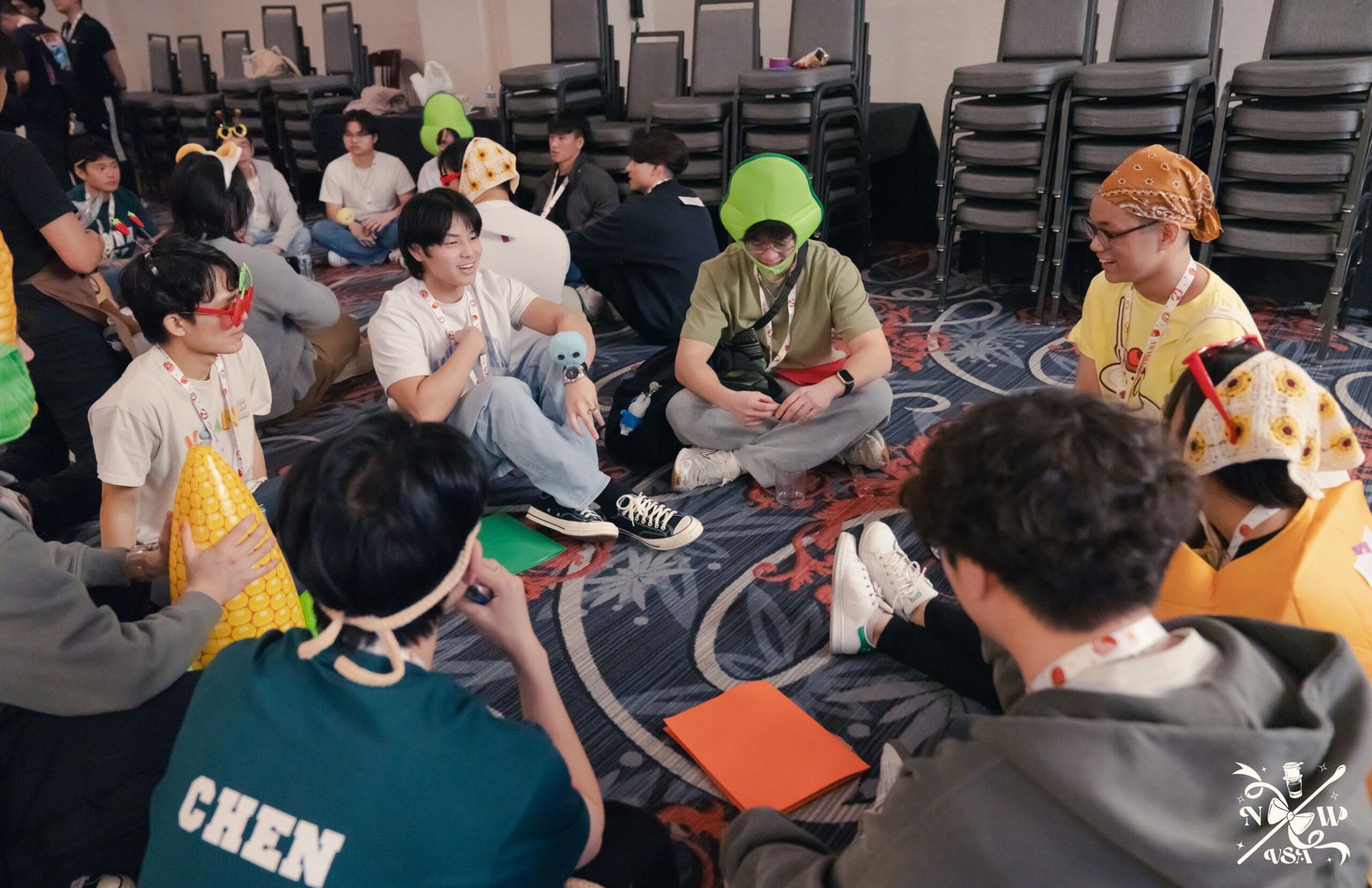Policies

Community Guidelines
In the NWVSA space, we do not tolerate any forms of:
- Cyber, Verbal, Social, & Physical Bullying
- Hostility
- Discrimination
- Harassment
- Injustice
If you witness or experience any of these behaviors, please inform NWVSA staff, cabinet, or executive board.
Strive to be mindful, compassionate, and supportive members of our community. Look out for one another and create the space you want to be part of.

Zero Tolerance Policy
The Northwest Vietnamese Student Association (NWVSA) is committed to providing an environment free from bullying, discrimination, and harassment based on any other characteristic protected by federal, state, or local employment discrimination laws.
NWVSA has adopted a zero-tolerance policy toward bullying, discrimination and all forms of unlawful harassment. This zero-tolerance policy means that no form of unlawful bullying, discrimination or harassing conduct by or towards any staff, member, vendor, or other person in our organization or event will be tolerated. NWVSA is committed to enforcing its policy at all levels within the organization. Any officer, director, staff, volunteer, or member who engages in prohibited bullying, discrimination or harassment will be subject to discipline, up to and including immediate discharge from NWVSA events or removal from leadership positions with first offense.
Examples of discrimination are, but are not limited to:
- Age
- Disability
- Physical features
- Political belief or activity
- Race (including color, nationality, ethnicity and ethnic origin)
- Religious belief
- Sexual orientation
- Gender identity
- Hate speech
Cyberbullying refers to sending, posting, or sharing negative, harmful, false, or mean content about someone else. It can include sharing personal or private information about someone else causing embarrassment or humiliation. Some cyberbullying crosses the line into unlawful or criminal behavior.
Physical Bullying refers to hurting a person’s body or possessions. Examples include, but not limited to hitting, spitting, tripping, or making rude or mean hand gestures is also physical bullying.
Verbal Bullying refers to saying or writing mean things. Examples of this include, but are not limited to threatening, name calling, or unwarranted sexual comments.
Social Bullying refers to leaving someone out on purpose. Examples of this include, but are not limited to telling others to not befriend an individual, spreading rumors, or purposefully embarrassing an individual.
Discrimination refers to when an individual or individuals are treated unfairly because they belong to a particular group of people or have a particular characteristic.
Examples of harassment include, but are not limited to, racial or sexual slurs, name calling, racist or sexist jokes, negative stereotyping, physical assault, bullying, threats, demeaning pictures, posters and graffiti.
Harassment includes the following categories of behavior, whether the behavior occurs once or multiple times:
Discrimination refers to treating people differently, negatively, or adversely because of one or more of the following prohibited grounds of discrimination: race, color, ancestry, place of origin, political belief, religion, age, sex, sexual orientation, marital status, family status, physical or mental disability, personal appearance, veteran status, pardoned criminal conviction, or any other legally protected characteristic.
Personal harassment includes ostracizing, shunning, and other forms of uncivil conduct made on either a one-time or continuous basis that demeans, belittles, or causes personal intimidating, humiliating, hostile, or offensive work environments for the recipient. It may or may not be linked to discriminatory behavior.
Sexual harassment refers to any conduct, comment, gesture, or contact of a sexual nature, whether on a one-time basis or a series of incidents, that might reasonably be expected to cause offence or humiliation or that might reasonably be perceived as placing a condition of a sexual nature on employment and volunteering, an opportunity for training or promotion, receipt of services, or a contract.
Examples of behavior that can constitute sexual harassment include, but are not limited to:
- Unwanted touching, hugging, patting or leering
- Verbal or written conduct such as derogatory comments, slurs, epithets, notes, messages, invitations, or jokes
- Sexual assault
- Sexual propositions
- Inquiries or comments about a person’s sex life
- Telephone calls with sexual overtones
- Gender-based insults or jokes causing embarrassment or humiliation
- Repeated unwanted social or sexual invitations
- Inappropriate or unwelcome focus/comments on a person’s physical attributes or appearance
- Offensive message or comments transmitted by e-mail or another messaging system
- Offensive or suggestive images or graphics whether physically present in the workplace/event or accessed over the Internet; or the possession of or use of sexually suggestive object
- Offensive and unwelcome conduct of a sexual nature, including sexually graphic spoken comments
- Bullying
Bullying consists of behavior to attack and diminish another by subjecting the recipient to unjustified criticism and trivial fault-finding, humiliating the recipient (especially in front of others), and/or ignoring, overruling, isolating and excluding the recipient.
Examples of abuse of authority include, but are not limited to, such acts or misuse of power as intimidation, threats, blackmail, or coercion.
Poisoned work environment
A poisoned work environment is characterized by an activity or behavior, not necessarily directed at anyone in particular, that creates a hostile or offensive workplace.
Examples of a poisoned work environment include but are not limited to: graffiti, sexual, racial or religious insults or jokes, abusive treatment of an employee, and the display of pornographic or other offensive material.
Procedures in Cases of Bullying, Discrimination, or Harassment
Any NWVSA member who feels that he/she/they/e/ey/xe/ve/zie has been subjected to or knows an individual who has been subjected to any form of bullying, discrimination, or harassment of any kind has the responsibility to report the incident(s) immediately to NWVSA Executive board (eboard@nwvsa.org). If the member is uncomfortable reporting the incident(s) to NWVSA Executive board (whether because an Executive board member has committed the harassment, or for any other reason whatsoever), the member must report the incident(s) to the NWVSA Board of Director (bod@nwvsa.org).
NWVSA is committed to taking all reasonable steps to prevent bullying, discrimination, or harassment. NWVSA will make every reasonable effort promptly and completely to address and correct any incident(s) that may occur. However, NWVSA cannot take prompt and effective remedial action unless each NWVSA member assumes the responsibility of reporting any incident(s) of bullying, discrimination, or immediately to the NWVSA Executive board.
Every report of bullying, discrimination, or harassment will be investigated promptly and impartially, with every effort to maintain confidentiality. The complainant and the accused will be informed of the results of the investigation. If NWVSA finds that its policy has been violated, it will take appropriate corrective and remedial action, up to and including discharge of offending officers, staff, or volunteers, and/or similarly appropriate action towards offending vendors, contractors, or members.
Retaliation is against the law and this policy prohibits retaliation of any kind against individuals who file valid complaints or who participate in an investigation.





